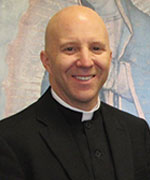Jennifer Wright
By Faith, Rahab Changes Human History
Servants of Excellence
“By faith Rahab the harlot did not perish along with those who were disobedient, after she had welcomed the spies in peace.”
Hebrews 11:31
We all probably know the story of Rahab the harlot. As a quick refresher, Joshua sent spies into the city of Jericho to check out the city Israel was to conquer. Rahab, a woman of ill repute, took in the spies and when the King’s men asked her to turn them over, she hid Joshua’s men in her attic. Then, she lied to the king’s men, telling them the spies “went thataway!” Off the king’s men went, never finding the spies.
A short time later, the army of Israel marched around Jericho for six days. On the seventh, they blew the trumpets and the walls fell.
Rahab’s faith—a belief that the spies were men of God—saved her and her family. This led to a series of amazing events.
Here’s a question: “What would have happened if Rahab obeyed her king instead of taking her step of faith?”
The quick answer is, “Well, God would have worked it out another way.” Maybe this is correct. But we don’t know this.
What we do know is; a woman who was likely at the absolute bottom of the social ladder, who was likely mocked by the very men who accessed her services, who was labeled in the most hurtful way . . . suddenly faced a choice and an opportunity.
She could choose to obey the authority she knew (her king), or she could choose the God she did not know. She decided on a leap of faith.
Hundreds of years later, the writer of the letter to the Hebrews still called her “Rahab the harlot.” So no, she didn’t lose her label. But she did gain entrance into what we now call, “The Hall of Faith” in Hebrews 11.
Rahab’s choice led to the conquering of Jericho. Which led to Israel’s rise as a nation. Rahab’s choice also led her to marry Salmon, which led to the birth of Boaz. Boaz married Ruth, one of only two women to have books of the Bible named after them. Rahab, Ruth and others created the generational line leading to the mighty King David. And King David led to . . . Jesus.
One choice. Just one. By a woman with everything stacked against her.
Two thoughts to keep in mind.
One, the clients and patients who come in our door may have everything stacked against them. But one choice—just one—can change everything. Let’s always remember this.
Two, what about us? We all wonder at times, “Can God work through me?” I don’t write the following to diminish Rahab, but her being labeled a harlot is a lesson that God uses the unlikely. Regardless of our pasts--whether better or worse than Rahab’s--God seeks those who will seize the opportunities He gives.
Rahab seized her opportunity and her moment of faith changed the scope of human history. Why can’t this happen when the unlikely person walks in our door? And why can’t this happen with us, his unlikely servants?
by Kirk Walden, Advancement Specialist
Thank You for Your YES
Dear Friends in Christ and Fellow Laborers in the Service of Life and Family,
Thank you for your heroic witness and numerous sacrifices offered on behalf of the most vulnerable of our global societies. As fellow servants of Life and Family, HLI has experienced the powerful life-changing impact of Pregnancy Centers and the services they offer.
Heartbeat International's mission is to “Reach and Rescue as many lives as possible, around the world, through an effective network of life-affirming pregnancy help, to Renew communities for Life.” This effort is possible and actualized because you believe that every precious life matters and has inherent dignity – is unrepeatable and deserves to be protected and served.
Your intercession has not only saved the lives of countless innocent pre-born children and their families from the violence of abortion, but it has also inspired greater awareness of our need to step out of our comfort zone and dare to stare the ongoing, physical reality of abortion in the face. Nothing brings home the brutal reality of abortion like standing on a sidewalk watching as men and women walk into an abortion facility to have their precious children killed. This experience can be gut-wrenching, but it’s also exactly what many of us need to shake off our complacency and light a fire in our bellies for Life.
Your great mission challenges every member of society, Christian and non-Christian, to answer the questions, “Who is my neighbor?” and “Lord, when did I see you hungry, thirsty or naked…?”
Because of your love and compassion, people who believe in the dignity and sacredness of all human life, women and their unborn children receive genuine care and support, no matter the circumstances. Your charity and intervention authentically helps women see past the pro-abortion propaganda and immediate struggle they face, offering a variety of true help and services. Heartbeat’s accompaniment stands in stark contrast to the death peddlers whose solution to a current “crisis” is the destruction of a child and a mother’s lifetime filled with misery and memories of “what could have been.”
I believe abortion will never end until every Christian man and woman of good will considers it a personal responsibility to do everything reasonably in his or her power to protect life. That’s because abortion is so deeply embedded in our culture, we can’t expect a mere change of the laws, or the correct
public relations “strategy”, executed by large pro-life organizations, to loosen its stranglehold. What we need above all is conversion of heart, on a societal scale. And unless Christians like you and me are out there, literally on the street corners, publicly witnessing to self-sacrificial love and the Gospel message that will never happen.
Yet, it is hard to comprehend what our world would be like without people like you willing to sacrifice for Love. There is no doubt that the grip of the Evil One and the Culture of Death would be far tighter. You seek no self-congratulatory praise but offer everything for God’s glory alone. Know that you, a unique and unrepeatable gift, are making an irreplaceable difference. You are saving lives, one heartbeat at a time.
Thank you for saying YES!
Fraternally in Christ,
Rev. Father Shenan J. Boquet
President of Human Life International
Join us for Fr. Boquet's keynote address at the 2018 Heartbeat International Annual Conference. Fr. Boquet will be just one of seven kenote speakers at this year's Heartbeat Conference in Anaheim, California. Click here to learn more and register!
Joyful, Joyful March We Onward
by Tim Stephens, EWS Developer/Designer/Digital Marketing Specialist
". . . fixing our eyes on Jesus, the author and perfecter of our faith, who for the joy set before him endured the cross. . ."
Hebrews 12:2
Joy is a unique and beautiful concept. We regularly associate joy with feelings of happiness and glee and other fortunate states of wellbeing, but in the life of a Christ-follower, joy is often best represented in a steadfast service to His Kingdom during our trials and pain. Happiness and joy are not mutually exclusive, but while happiness is primarily influenced by external factors, joy is a consistent and internal state that surpasses our circumstance.
This is iterated time and time again throughout the Bible:
“In this you greatly rejoice, though now for a little while you may have had to suffer grief in all kinds of trials” 1 Peter 1:6
“. . . sorrowful, yet always rejoicing; poor, yet making many rich; having nothing, and yet possessing everything.” 2 Corinthians 6:10
As followers of Christ, we desire to imitate the servant spirit that Jesus has exemplified for us. His unrelenting and sacrificial servanthood and care endured all things - all trials, even to the cross – with Joy! Philippians 2:5 tells us that our attitude “should be the same as that of Christ Jesus.” We are called to serve, as He did, with joy.
We aren’t promised happiness, particularly as we seek to serve the weary, the broken, the poor and the hurting, but we can find joy in the work that we do… and what better service to find joy in than to speak to and rescue life? In fact, what better service to experience happiness birthed from joy? As we reach the women and men that are scared and hurting, as we see the lives of innocent children saved and as we have opportunity to see first-hand some of those children grow and experience life, we can receive a happiness and glee beyond measure.
As I write this, I’m reminded of one of my favorite lyrics:
“Ever singing, march we onward,
victors in the midst of strife;
joyful music leads us sunward,
in the triumph song of life.”
Take time today to be encouraged and to encourage others as we march onward as victors in the midst of strife. We may be opposed, oppressed, and ostracized, yet we will move forward in obedience, with joy in our hearts and our eyes fixed on Jesus, in the triumph song of life.
Option Line Reaches 3 Million Calls! A Praise, A Prayer, An Action

On Thursday afternoon, Feb. 22, 2018, Option Line answered a live chat from “Jennifer,” a 19-year-old in Fort Wayne, Indiana.
As God would have it, Jennifer is the 3 millionth person to cry out for help since Option Line first answered the call in 2003.
We want to tell you a bit about Jennifer, and invite you to join us in praying for Jennifer, her baby and family in this time of great need. And one more thing: We want to ask you to check your listing on OptionLine.org to make sure we have the latest information, so we can connect women just like Jennifer to life-saving help.
Now, to Jennifer’s story:
Realizing she was pregnant, Jennifer had found Option Line—our 24-7, 365 helpline (1-800-712-HELP and OptionLine.org)—by searching online for help.
Even though it was well into the evening by the time Jennifer reached out, Option Line was ready to help her. In seconds, she was chatting with "Melinda," one of our professionally trained consultants who’s answered over 45,000 cries for help.
Melinda has two goals with each woman she helps:
First, she prayerfully works to calm the woman’s initial fears, as well as ask and answer any questions she can.
Second, she does everything in her power to encourage that woman to get help at a local pregnancy center.
As they chatted, Jennifer said she felt caught between the “right” thing to do and the “easy” thing to do. She just wanted to get this whole thing behind her.
Melinda prayed, listened, and asked questions to help Jennifer feel empowered to make a decision for life.
Before they ended the chat, Melinda offered to connect Jennifer directly with A Hope Center—a Heartbeat International affiliate—in Fort Wayne. As she so often does, Melinda also offered to pray for Jennifer and reassured her that she’s not alone.
Will you join us in praying for Jennifer this week?
Also, will you check your listing on OptionLine.org? You can just visit the site and enter your zip code to check your information. If anything’s missing or incorrect, please send updates to This email address is being protected from spambots. You need JavaScript enabled to view it..
Helpful Option Line Links:
HOPE Floats!
by Ducia Hamm, Associate Director of Affiliate Services
“For I know the plans I have for you,” declares the Lord, “plans to prosper you and not to harm you, plans to give you HOPE and a future.”
Jeremiah 29:11 NIV (emphasis added)
Back in the 1950’s, Curt Richter, a well-known Harvard graduate and scientist with Johns Hopkins University did a series of rather unorthodox experiments using water, buckets and rats that resulted in an amazing discovery. He wanted to see how long rats could swim before they drowned. Cringe-worthy no doubt! So you ask “What’s so amazing about knowing how long it takes for a rat to drown?” Bear with me for a bit longer…
Richter put rats into large buckets, half-filled with circulating water. Being notoriously good swimmers – the rats lasted about 15 minutes before giving up and succumbing to the depths of the bucket. Not impressed – I wasn’t either. All I was thinking was “Poor rat!” Richter must have read my mind.
In a follow-up experiment, as the rats started to give up and sink, he pulled the drowning rodents to safety, dried them off, gave them a brief period of rest only to put them right back into that same bucket. Here comes the amazing part – those same rats now swam for an average of 60 hours – YEP – that’s six with a zero or two and a half days.
A rat that was temporarily saved survived 240 times longer than one that was not given any intervention.
Richter’s conclusion: that saving a rat from drowning – even temporarily, gave that rat hope.
More often than not – clients come through your doors on any given day emotionally, spiritually and sometimes even physically “drowning”. They’re trying to just tread water as their life seemingly swirls around them, feeling as if they are getting pulled under at every turn. What these hurting women and men need is an infusion of hope. And that’s exactly what you do – when you answer the phone with a cheerful voice, when your clients are made to feel welcome by a friendly receptionist, when your Client Advocate radiates the Love of Christ so they treat clients as honored guests and not unwelcome, bothersome interruptions. You are essentially taking them out of the swirling waters of their lives, drying them off, providing your clients an opportunity to rest and give them an infusion of hope.
And that’s just what Heartbeat International wants you, as our treasured affiliates to experience as well. We understand that there will be times in your respective ministries that you will feel like you’re “drowning”. When those moments arise – and they will – we want you to know that help is just a phone call or email away. We are here for you with an encouraging word. We are available to listen and advise on an ongoing issue. Heartbeat consultants are available to provide affordable training seminars for staff, board and/or volunteers of pregnancy help organizations.
Also, Heartbeat International’s Pregnancy Help Conference provides a time to “dry off and rest”, offering that infusion of hope and strength to continue on in your mission. Heartbeat is here to encourage, empower and educate so you have the tools and resources that act as “life-preservers” enabling you to keep “swimming” until you reach the shore or at the very least, are in a place where your feet touch bottom (something those poor rats didn’t have).
Put it all together and add in the opportunity to network with fellow workers, you have the assurance that you are not swimming alone.
World Changers Stand in the Gap
by Pastor Andy Merritt
Let me share with you why I believe the Heartbeat Conference is so important for you to attend. In Ezekiel 22 God confronts the nation of Israel with the sins that eventually brought God’s judgment, the most prominent being the shedding of innocent blood mentioned eight times. At the end of the chapter God says, I looked for someone who might rebuild the wall of righteousness that guards the land. I searched for someone to stand in the gap in the wall so I wouldn’t have to destroy the land, but I found no one.
It takes great courage and involves great risk of life to stand in the gap; to rush to where the breach is in the wall, where the enemies of God are pouring in like a flood, to fight back the forces of evil, and repair the wall of righteousness. Sadly, in Ezekiel’s day, God found no one to stand in the gap. However, today you have chosen to stand in the gap in your local pregnancy center ministry. You are doing battle with the forces of evil to end the shedding of innocent blood, to rescue precious babies, and see their mothers and others redeemed by God’s grace.
Thank you for standing in gap! Thank you for being a contemporary hero of faith!
My point is this.
Standing in the gap is costly because it is there were the battle is most fierce, and in pregnancy center ministry we have seen the battle intensify and persecution escalate. It is inevitable wounds will be suffered, and often the greatest battle is not with the enemy, but with our own pain, weariness, & discouragement. Every soldier needs some R&R and that is why the Heartbeat Conference is so important for you to attend.
The Conference is a safe place to receive encouragement, equipping, and spiritual renewal in order to return to stand in the gap with even greater effectiveness. The theme for the Conference is “World Changers” and the key to changing the world is for God to change me. There is no greater priority than our personal relationship with God, because power to stand in the gap is dependent upon purity of heart and life in Christ.
I invite you to attend the sessions I will be leading which will focus on spiritual renewal for the battle. Everything shared will be in the context of and applied directly to pregnancy center ministry. The first is a Tuesday Pre-Conference In Depth Day, entitled, “How to Fight Through Adversity and Discouragement.” The second is a Wednesday 10:00am workshop, entitled, “Serving the God of the Impossible” (How To Deal With Hard Cases). My love and prayers are with you.
Hope to see you in Anaheim!
The Revolutionary Power of Relationship
by Mary Peterson, Housing Specialist
The pregnancy help movement has long been a advocate of relationship being the central aspect of ministry. Heartbeat developed this principle into a method they refer to as The LOVE Approach which has been taught in countries across the world.
In recent years, brain science and trauma-informed care research has further validated this idea. This area of study is providing new findings and strategies to further develop connection with clients with deep compassion.
Debbie Simmons of Anchor Point has introduced one trauma-informed method, Trust-Based Relational Intervention (TBRI), into her life-saving work. She was so convicted about the impact that TBRI was having in her ministry that she become a trainer on the topic.
"TBRI has revolutionized our ministry and seeing that transformation, you can't help but get excited," Simmons said with passion. "It has taken our ministry to the next level of impact." She continued that TBRI has not only changed the way that she does ministry but also the way that she parents and approaches all relationships.
Debbie furthered described the impact saying, "Our clients are 'kids from hard places' and without a radical difference in their lives, they will raise 'kids from hard places.'" Simmons described how practical differences–things like layout of the building, discipline strategies, and communication tools–can shift a client from having a "fixed mindset" to having a "growth mindset."
"In taking our focus on connection to a whole new level," Debbie described, "our staff needed to have eyes of compassion at a whole new level." For Anchor Point, adopting a TBRI framework provided the training and methods allowed that shift to take place. "It allowed us to see our clients in a whole new light."
Valerie Harkins, Program Director of LifeHouse, has also integrated the TBRI model in the daily functioning of their maternity homes. "The new approach allowed us to move away from power struggles to shared decision making," She continued, "We still maintain authority but do so in a way that respects the woman's deep need to feel safe and in control." For further reading on TBRI, Harkins recommends The Connected Child by Karyn Purvis.
Organizations that are interested in learning more about Trust-Based Relational Intervention can join Debbie Simmons as she presents an In-Depth Day at the Heartbeat Conference in Anaheim, CA on April 10, 2018.
Simmons invited organizations to invest in impact. "These are life and death issues...eternal issues," Simmons asserted, "we want to get them right!"
Not My Circus, Not My Monkeys

Servants of Excellence
“Woman, believe me, an hour is coming when neither in this mountain, nor in Jerusalem, shall you worship the father . . . but an hour is coming, and now is, when the true worshipers shall worship the father in spirit and in truth . . . .” John 4: 21-23
There’s a Polish proverb which millennials often use today: “Not my circus, not my monkeys.” It’s a way of saying, “Don’t drag me into your drama and your issues—I’m not getting involved.”
My daughter used this phrase once and it captured me, because Jesus used this thinking often. The Samaritan Woman at the well in John 4 is a perfect example. We know the story; when Jesus asks the woman to call her husband, she says, “I have no husband.”
And what does Jesus say to this? He tells her something he would not be expected to know; that she has had five husbands and is currently living with a man who is not her husband. Stunned I’m sure, she responds, “Sir, I perceive that you are a prophet.”
Let’s pause for a moment and say collectively, “No kidding!”
She goes on however: “Our fathers worshiped in this mountain and you people (Jews) say that in Jerusalem is the place where men ought to worship.”
Jesus response? In the words of the Polish proverb, “Not my circus, not my monkeys.” In John 4:21-23 he cuts right to the heart of the matter, saying it doesn’t matter where we worship; it matters who and how we worship.
I love it. Jesus never got sucked in to religious debates on non-essential issues. He was about one thing: Reconciling men and women with his father. To Jesus, peripheral matters were a waste of time.
When we reach out to those who enter our centers, clinics and maternity homes, we can count on faith questions. But just like the Samaritan Woman, many of these questions will be peripheral, such as “Do you believe in this doctrine? Do you believe a Christian can do this? That?”
Most of the time, those seeking answers to peripheral issues want to find a dividing point; a way to say, “You don’t believe like me, so I won’t listen to you.”
If we wish to reach others with the love of Christ, our mission begins by finding the heart of the matter, like Jesus did. A few moments after the Woman at the Well asked her non-essential question, Jesus’ response—piercing her heart—led her to say, “I know that Messiah is coming (He who is called Christ); when that one comes, he will declare all things to us.”
Aha. Jesus prodded her to something new, something bigger than her “where do we worship?” question.
Then, Jesus said, “I who speak to you am he.”
Wow. All because Jesus found the heart of the matter. For Jesus, the “where to worship” argument was “Not my circus, not my monkeys.” And within minutes, a heart was changed.
It’s a good lesson for us. Let’s seek the wisdom to lovingly say, “Not my circus, not my monkeys” to some of the questions we are asked—and seek the heart of the matter. For someone searching for true answers, it can make all the difference in the world.
by Kirk Walden, Advancement Specialist
How to Jumpstart Your Time in God’s Word
by Keith Ferrin, Guest Writer
The new year is upon us. For most people, that means New Year’s Resolutions. And for most Christians, one of the resolutions includes some form of the phrase “read the Bible more consistently.”
But how do we do it? How do we stick with it? How do we find a way to truly connect with God through His Word on a regular basis?
Helping people answer these questions has been my passion – and the centerpiece of my writing and speaking ministry – for the last 22 years.
In all transparency, I am passionate about it because I haven’t always loved the Bible. There…I said it.
I always felt like I “should” read it more consistently. I “should” know it better after being in the church my whole life. I “should” talk about it more. I “should” memorize more verses. The “shoulds” kept piling up…for almost 25 years!
Then, beginning in the spring of 1993, the “should” changed to “want.” It was amazing!
I started looking at the Bible differently. I started reading it differently. I started enjoying it more. I started studying it in a way that I remembered it days and weeks later. My time in the Word began to have a greater impact on my everyday life.
In short, I made two shifts in my Bible reading.
Shift One: My Mindset
Pause and ask yourself this question: Why do I read the Bible?
What was your answer? I have asked this question hundreds of times to thousands of people. A majority of the time, the answer comes down to something like this…
“I read the Bible to know what God wants me to know, so I can do what God wants me to do, and live a life that glorifies Him.”
Sounds good, right? After all, knowing, doing, living, and glorifying are good things!
While all four of these are fantastic, I no longer believe they are the primary reason for being in God’s Word. Here is what God revealed to me over the course of 12-18 months starting in the spring of 1993…
“The primary purpose for reading the Bible is to hang out with Jesus. The Bible is the only book that’s ever been written for the purpose of helping you fall in love with the Author.”
Put even more simply: Read the Bible relationally, not informationally.
The best part is that the more relational our approach – and the more we fall in love with Jesus – the more He will teach us, encourage us, shape us, challenge us, and mold us into people who live lives that glorify Him.
We are not setting aside knowing, doing, living, and glorifying. We still accomplish all of those things as an outflowing of the beautiful relationship God has desired all along!
Shift Two: My Method
My approach to HOW I study the Bible (and the flaws I see with many of the Bible study methods I have tried in the past) can best be explained by thinking about movies. (Yup…movies.)
I love movies. Funny. Moving. Intense. True stories. Twisty-Turny. I love all kinds of movies.
Now, imagine you and I sit down to watch a movie neither of us has ever seen. The opening credits fade into the first scene. We are both drawn into the characters, setting, and mood of the film. As Scene 1 transitions to Scene 2, I push the Pause button and say, “Let’s discuss that. What did you think?”
After an awkward conversation, I push Play and we watch Scene 2. Then I pause the movie again and want to discuss it. Then Scene 3…
What do you think? Would you enjoy that? Me neither!
And yet, don’t we frequently do that with the Bible? We read one verse, or maybe a chapter. Then we study it, think about what it means, and try to find the truth to apply. The next day, we do it again.
We study the scenes before we watch the movie!
Don’t get me wrong. Studying the “scenes” in the Bible is immensely valuable. However, if you truly want to enjoy the Bible watching the “movie” of an entire book is where we need to start.
If you and I watch a movie, and after the movie we discuss a scene, character, or plot twist, the watching AND the discussing will BOTH be enjoyable.
If you want to enjoy – and remember – what you read in the Bible, start with a relational mindset. Then pick up a book of the Bible and “watch the movie.” Read the book – in its entirety – every day for a couple of weeks. Then go back and “study the scenes.”
You will be amazed at how much more you see. And how much more you enjoy what you read!
Keith Ferrin is the author of Falling in Love with God's Word.
Founder of That You May Know Ministries, Keith has been doing Scripture presentations since March 1996. He has served as a speaker for retreats, conferences, outreach events, and fundraisers. His practical, humorous, and thought-provoking style makes the Word come alive for audiences of all ages and backgrounds. From December of 1991 to August of 1997, Keith was a youth and worship pastor in Tacoma, Washington. Since then, That You May Know Ministries has been his primary vocation.
Servants Sometimes Dismiss ‘Common Sense,’ and That’s Okay
Servants of Excellence
“Then Paul answered, ‘What are you doing, weeping and breaking my heart? For I am ready not only to be bound, but even to die at Jerusalem for the name of the Lord Jesus.’” Acts 21:13
Paul was a man on a mission, headed for Jerusalem—even when common sense stood in the way. In Acts 21 we see the story of Paul’s travels and a couple of uncommon occurrences. First, in Acts 21:4 the disciples warn Paul (through the spirit of God, no less) not to set foot in Jerusalem.
Yet, Paul appears to ignore this counsel, instead moving toward that very city, stopping in Caesarea to stay with Philip the evangelist. While there, we have our second uncommon occurrence: A prophet, Agabus, came from Judea. He took Paul’s belt and bound his own feet and hands saying, “This is what the Holy Spirit says: ‘In this way the Jews at Jerusalem will bind the man who owns this belt and deliver him into the hands of the Gentiles.’”
Those gathered did what any of us would likely do; they begged Paul not to go to Jerusalem (Acts 21:12). Common sense, right? How many times did God have to make this clear?
Everything added up perfectly. Paul’s response then, should have been, “I’ll stay right here with you folks; Jerusalem is off my list of destinations.”
But Paul decided to go anyway. Some might read this and say, “This was Paul’s mistake.” Maybe they are right.
Perhaps however, Paul was being given a choice. Knowing danger awaited in Jerusalem, he could choose the common-sense path and avoid persecution. Or, he could go forward in service to Christ, knowing exactly what was ahead.
Agabus’ prophecy proved correct. In Jerusalem, Paul was dragged from the temple, beaten and bound with chains (Acts 21:30-33).
Yet something else happened in Jerusalem, too. Jews and Gentiles alike were encouraged through Paul’s visit there. In addition, the good news flourished, even as Paul experienced incarceration and several trials.
In our lives and in our work, sometimes all the arrows appear to point toward a common-sense decision. Sometimes, those arrows are correct. But we need to at least leave room for uncommon-sense decisions which appear to fly in the face of conventional wisdom.
We must also be aware that “uncommon” decisions can lead to trial. We might lose something—as Paul lost a portion of his freedom—through an uncommon-sense decision.
Biblical historians may argue over whether Paul made the right choice, but we can know this: Paul’s decision was based on a desire to serve his master, and to take the good news message anywhere it was needed—no matter the personal cost. Because of Paul’s decision to think in terms of serving, God continued to use him in a mighty way.
When we find our work has a cost, we can take heart. We may not always make the correct decision, but we can know that if our heart is one of servanthood, God can work through us in ways we cannot imagine.

